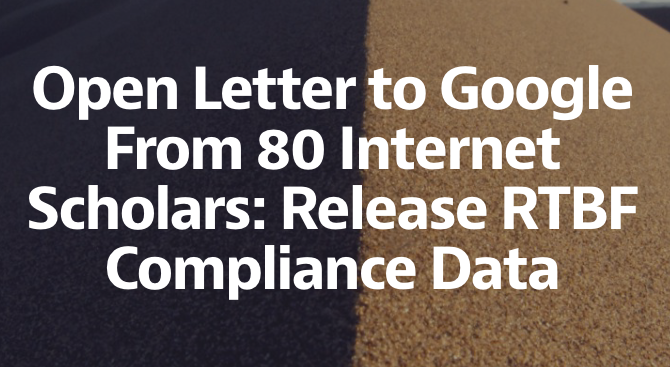Professor Ellen Goodman of Rutgers University (US) and Researcher Julia Powles of Cambridge University (UK) co-authored an open letter, signed by 80 professors from the US and Europe, asking Google to release data on how it decides EU right to be forgotten requests. On their website, the group of professors sharply criticize Google for its perceived lack of transparency: "In various venues, Google has shared some 40 examples of delisting requests granted and denied (including 22 examples on its website), and it has revealed the top sources of material requested to be delisted (amounting to less than 8% of total candidate URLs). Most of the examples surfaced more than six months ago, with minimal transparency since then. While Google’s decisions will seem reasonable enough to most, in the absence of real information about how representative these are, the arguments about the validity and application of the RTBF are impossible to evaluate with rigour."
The 80 professors want Google to reveal: "What sort of information typically gets delisted (e.g., personal health) and what sort typically does not (e.g., about a public figure), in what proportions and in what countries?" The group lists 13 categories of data they want Google to disclose.
The group of professors explain their demand as follows: "We all believe that implementation of the ruling should be much more transparent for at least two reasons: (1) the public should be able to find out how digital platforms exercise their tremendous power over readily accessible information; and (2) implementation of the ruling will affect the future of the RTBF in Europe and elsewhere, and will more generally inform global efforts to accommodate privacy rights with other interests in data flows."
